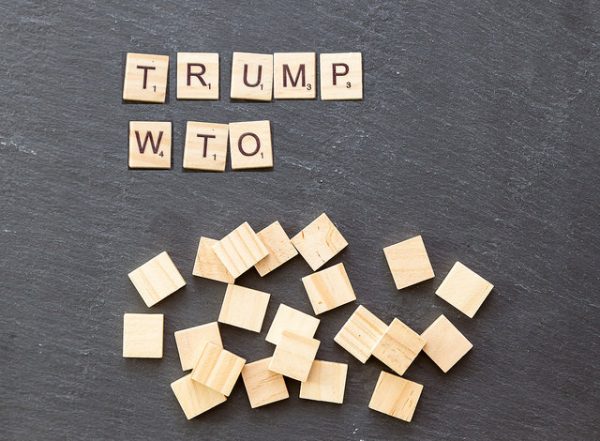For those who wish to educate themselves about WTO, please read on. Unfortunately, it requires reading a little longer than a slogan on the side of a bus which explains why there is such ill-informed opinion from Brexiteers.
It is misleading to claim that the rest of the world trades with the EU on WTO terms. The Institute for Government, a think-tank in London, notes that all big countries have bilateral agreements on such trade-facilitating measures as customs co-operation, data exchange and standards.
Hosuk Lee-Makiyama of ECIPE, a Brussels-based think-tank, says that only seven countries trade with the EU on WTO terms alone—and they are small fry like Cuba and Venezuela. The only country to use WTO alone is Mauritiana, however they do have preferential agreements that would not be available to the U.K. Mauritiana’s GDP is 0.2% of the UK’s…
In any case, reverting to WTO rules is not simple. Britain was a founder of the organisation but now belongs as an EU member. To resume WTO membership independently will require a division of EU import quotas, notably for beef, lamb and butter. A first effort was roundly rejected by big food exporters like Brazil, Argentina and America. The WTO proceeds by consensus among its 164 members.
Were Britain to leave the EU on acrimonious terms, negotiating its resumption of full WTO membership could be difficult.
Brexiteers say trade with third countries would be easier. Perhaps, but the EU has free-trade deals with some 60 countries, including South Korea, Mexico and Japan. It will not be easy for Britain to “grandfather” these deals, especially if it has walked out with no deal, if only because doing so would need EU agreement, too.
Then there is the WTO’s “most-favoured-nation” rule, which bars discrimination unless it is allowed by a fully registered free-trade deal. If after no deal Britain and the EU wanted bilateral trade to stay tariff-free, both sides would have to offer the same privileges to all WTO members.
Services are barely covered by WTO rules. But even here, were Britain to seek to keep trade in services, the same terms would have to be given to several countries with which the EU has free-trade deals, including Canada. Subjection to WTO rules might yet prove more irksome than Brexiteers realise.
The UK does not need to reapply to the WTO on leaving the EU. The UK is a member in its own right, even though it currently operates through the bloc. And so the UK’s detailed WTO commitments on tariffs and barriers to trade are set out in schedules shared with the EU.
On Brexit, the UK will need to have its own schedules and for those schedules to be certified, there must be no objections by any other WTO members.
Some have speculated that the ability of any member of the WTO to veto proposed changes would mean the UK was at the mercy of countries playing politics with ulterior motives, say by Argentina over the Falklands or by Spain over Gibraltar.
Or of course the EU themselves in the event of a no deal. As such, the WTO was another ironic example of a process supposedly about “taking back control” handing real power of the UK’s post-Brexit fate to the whims of outside powers.


